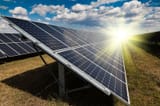
file
md5: ad621a7ac9710c5287453f4c6be09f16
🔍
Can someone please explain, in laymans terms for an idiot like me, how did scientists discover "energy" and how did the laws of thermodynamics come into being and are so strict?
In other words, how do we know what we know about this nebulous concept of energy?
a ball won't roll on its own, no matter how hard you ignore it
>>16731842I get that, but what I mean is shit like kinetic energy or how people worked out you can't make energy
And if you can't make energy then where did the energy we have now come from?
>>16731844Someone noticed that a quantity with units kg*m^2/s^2 is conserved in motion. Then they found other cases where the same type of quantity is also conserved. They called that energy
>>16731840 (OP)there is nothing nebulous about the concept of energy, it is the ability to do work. People observed things, like motion and created a name for it "energy." They then studied this motion to understand its properties. They noticed if you interacted with it, it moved, if you didnt, it didnt move. How far did it move when you put x amount of effort into moving it? That is the measurement of potential energy they figured out was correlated with its mass.
>>16731840 (OP)You test things and then make up words that describe reality. You are free to believe the fall won't kill you if you jump off building, it just doesn't mean it won't happen, but hey if you try perhaps it doesn't happen this time!
I mean even before modern science, people knew you could do certain things like grind mills with water flowing towards a water mill. So they had some understanding of transferrable action. Further, the more we examined how the universe work, how our solar system worked, how planets rotate, we discovered notions like gravity. Newton is prob famous for his 3 laws of motion. His analysis is that things in motion stay in motion, until its acted upon by another. And when things in motion meet each other, equal and opposite "force" is applied to push each other way. So they/we began to slowly grasp/understand there is such a thing as force in motion. Then we were trying to understand other forces, like forces of heat. The sun, fire, etc. Those have energy as well. Then storable/potential energy. Then analysis of fire, the sun, "energy" as tiny particles moving rapidly, etc.
>>16732036And also missing is that people began to slowly understand the energy from mechanical force, the heat from fire, the friction generated energy, electricity were all same in principle. It was a gradual thing that was used to explain how things moved. Imo, the big moments were the copernicus revolution where the big controversy about the nature of the solar system/universe and how we/god fit into our existence drove the curiosity of people all around.
>a mathematician predicted the speed of objects after falling a certain height, and it was always the same
>people discovered that heating gases cause physical changes (pressure, volume)
>the expansion of gases you can move objects against a resistive force, like gravity
>someone discovered that you can heat objects with a repeatable change of temperature that only depends of the work, heating by friction is known but the quantitative study is relatively recent
>chemical reactions needs the same amount of fuel
>it turns out that the temperature change only depends of work, and not the source of that work (like a weight falling, an engine); or the amount of fuel you burned
>defines a quantitative property that relates work, potential energy and temperature changes
>some autist dedicated years to research the relationship between fuel consumption of engines and the work generated by comparing the temperature change possible by the amount of fuel used vs the temperature change by the work of the engine.
>it turned to be that only a small fraction of the fuel energy is converted into movement, in the range of 1-5%.
>someone began to create a small set of "rules" to explain all energy-matter processes and all of them are inefficient in some degree. Explaining that created the concept of entropy and why you can't recover all the thermal energy you added to a fluid.
>>16731840 (OP)Dude if i start walking the entire universe, millions of galaxies, will be moving against me as seen in my inertial frame of reference. Do you have any idea of how much kinetic energy i could create in my frame of reference?
>>16731840 (OP)>Can someone please explain, in laymans terms for an idiot like me, how did scientists discover "energy" and how did the laws of thermodynamics come into being and are so strict?Gas changes temperature under higher pressures. This change is always proportional to a couple other numbers. More broadly, pressure, temperature, and volume of a gas is proportional the number of atoms of gas being observed. Measure lots of this and you develop equations. Expanding further into the rest of thermodynamics, it's observed that under certain conditions, ice will melt on it's own but not freeze, and under other conditions it will freeze but not melt - many of the quantities derived from the Pressure, Volume, Temperature tests can be used to explain this behaviour.
This is the dumb person answer.
